Can Community Save British Farming?
Stories, Support, and Solutions from Across the UK
The first time I truly understood the power of farming community, it wasn’t during a protest or a big campaign. It was the night a barn on our landlord’s farm caught fire. Before the insurance company even picked up the phone, three neighbours showed up to replace the straw that was lost in the blaze, start clearing the wreckage, and brought a flask of tea in hand. That’s what “community” means to me - it’s not just a word, but a lifeline.
Why Community Matters in British Farming
British farming isn’t just about fields and livestock, it’s about people. When things get tough, it’s the WhatsApp groups, the market stall chats, and the late-night calls between farmers that keep us going. Networks like the Landworkers’ Alliance have become crucial for support, lobbying, and sharing knowledge, especially in times of crisis.
Mental health & isolation: Peer groups and informal networks reduce loneliness and offer real support (RABI, FCN).
Policy influence: Collective voices, like those in the Landworkers’ Alliance, can shift policy and win fairer deals.
Knowledge sharing: Farmer-to-farmer learning, online and in-person, is how resilience spreads.
🌾 Gerald Miles - A Community Champion
I first came across Gerald’s story while working with Farms Not Factories, who filmed a beautiful feature with him at his farm in Wales as part of their “Wise Farmers” series. Gerald Miles is living proof that farming is about people, not just produce. Over decades, he’s fought for seed sovereignty, mentored new growers, and built a CSA that’s become a hub for his Pembrokeshire community and even as he faces the heartbreak of knowing his family may not keep the farm going.
I find Gerald’s story incredibly inspiring. He’s someone who lives his values and has dedicated his life to building a fairer, more resilient food system. His commitment to community, agroecology, and supporting new entrants into farming is exactly the kind of leadership we need more of in British agriculture.
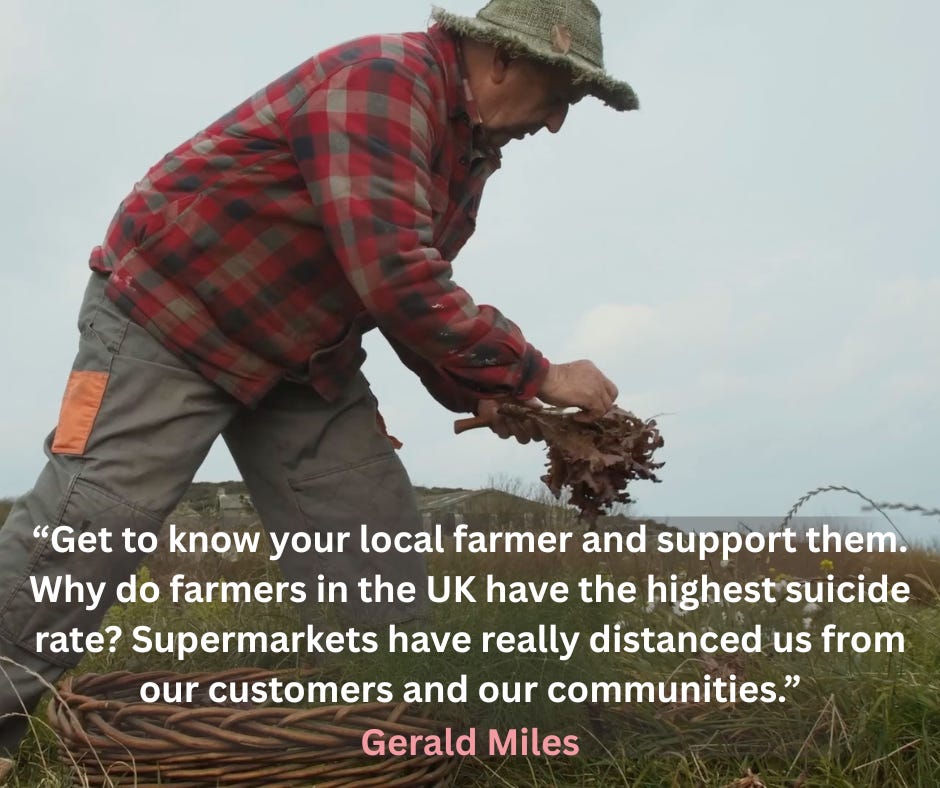
“I am passionate about creating a farming and food system that is good for people and the planet and have dedicated my life to growing local, healthy food and campaigning for the government to support small-scale, agro-ecological farms and make it easier for new entrants to begin their careers.”
Gerald Miles
If you want to see what real farmer-led change looks like, I highly recommend watching the Farms Not Factories Wise Farmers video and blog featuring Gerald Miles. It’s a powerful reminder of what’s possible when we put community first.
What is Community Supported Agriculture (CSA)?
By definition a CSA is a partnership. Members buy a share of a farm’s harvest in advance, sharing the risks and rewards. Most UK CSA’s are small, regenerative, and locally rooted. They don’t just grow food; they build relationships, support biodiversity, and help people eat better, together.
220+ CSAs in the UK, feeding 55,000+ people (CSA Network UK)
Benefits: Better produce, better mental health, stronger local economies
Related movements: Incredible Edible, community orchards, urban farms
What CSA Really Means – In the Words of a Farmer
Community comes in all shapes and sizes, and CSA doesn’t just mean buying from your local farmer. To farmers, community is about support and often in the most practical, everyday ways.
I have to give a shout out to Street Croft Farm, one of our neighbouring farms. Ian & Hannah have always looked for ways to give back, and they started a monthly farmers’ community evening called Tales & Ales. All landworkers, farmers, growers, estate workers, contractors, so many from the agricultural world, were invited. For Matt and me, this event was a lifeline. We’d organise childcare just to go, sit, have a few drinks, and share our troubles with farming friends. Even when our own farm was struggling, those evenings reminded me that we were never truly alone. That sense of belonging is what kept me going through the hardest seasons.
Through this group, we met some amazing farmers who deserve recognition:
Manor Farm – Newnham
Wild Green Acres – Newnham
The Hampshire Shepherd – Mattingley
Timway Poultry - Wonston
And a special shout out to Flavian, the Kenyan pig farmer. Flavian ran the pig unit on Newlyns Farm before moving to Tynfield and was a lifeline of wisdom and counsel when times were tough. We’d often meet on morning trips to the local abattoir and share our troubles. Later, this grew into referring customers and events to each other. If we couldn’t do a hog roast, we’d recommend Flav, and vice versa. This is how agriculture should be: farmers supporting each other, not competing.
Coming Together: The Power of Farmers’ Socials
One of my favourite memories from my farmers’ market days was as a board member of South West Surrey Farmers Market. Besides managing the social media and marketing, I got to know the traders as more than colleagues, they became a kind of extended family. Every weekend we’d see each other at markets, sharing our troubles, talking sales, swapping ideas and, more often than not, produce.
But there’s one experience I wish we could bottle and share with every farming community: the night we hosted a proper farmers’ market social at our farm. We invited everyone in the SWSFM network, fired up the pizza oven, and The Hampshire Shepherd brought a whole hogget and assado. Every producer contributed something - cheese, bread, pies, cider, you name it. We ate, we laughed, we sampled each other’s food, and for one night, the worries of the business faded away. The traders talked about that event for weeks afterwards, and I still wish we’d managed to do it again before I left the board and the market.
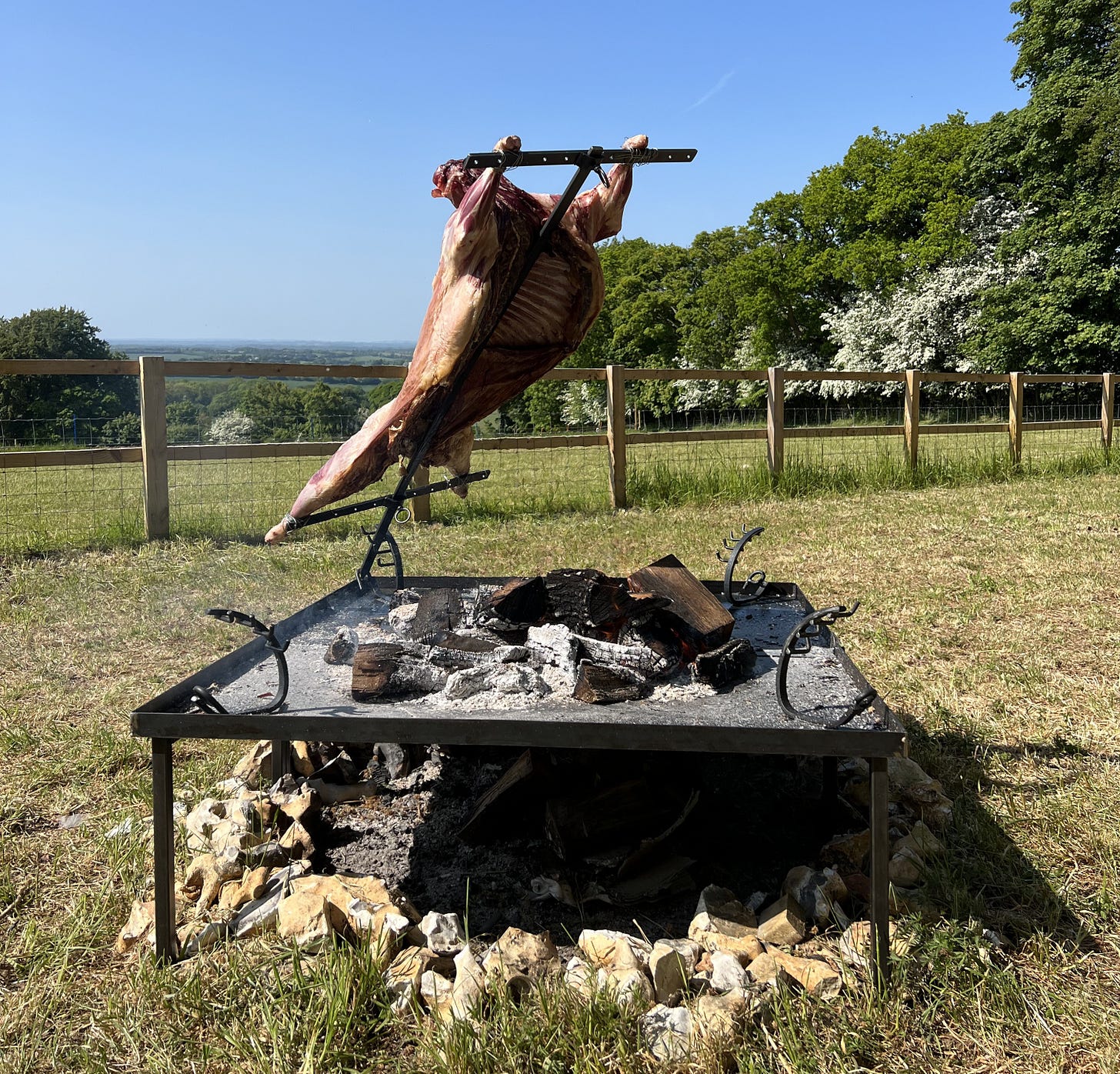
Farmers and market traders crave these opportunities to connect. Young Farmers organisations do a great job, but we need more spaces like this where the wider farming network can come together, let off steam, and remember why we do what we do. In farming, we’re often victims of our own habits of isolation. But when we gather ,at a farm, a market, or even events like the Oxford Real Farming Conference, you can see the passion reignite in people’s eyes. That’s the kind of strength that will carry our industry forward and keep us all going against the odds.
A Call for Unity
Right now, debates over inheritance tax and government policy are exposing deep divides. As Oli Fletcher writes in Scribehound:
“It is understandable people are angry. But we must not let the courage, solidarity and zeal displayed by individual farmers across the country be exploited by others. The efforts we make are our own, and the fruits of that labour should be preserved for our communities.”
Don’t get me wrong, I don’t agree with Oli on many things, and his article is primarily about attacking another organisation, Farmers to Action. But this quote is one of those lessons where he should lead by example.
When 40,000 farmers marched in London last November, there was unity and hope. Now, with infighting and outside agendas muddying the waters, I believe we need to return to that spirit of solidarity: fighting for each other, not just ourselves.
The Clarkson Effect: Public Support and Local Action
Clarkson’s Farm has shone a light on British agriculture’s struggles and, yes, it’s brought new supporters to the cause. In fact, Jeremy has become a face that stands for farmers and speaks out honestly about the pressures on the industry. His voice is one that the public & farmers have listened to and unites us even temporarily after his show releases a new season of Clarkson’s Farm. But real change will come when people don’t just visit Diddly Squat for the novelty, but start buying from their local farm shop, too. The future of farming depends on all of us supporting our own communities, not just the celebrities.
How to Find and Join a Local CSA
One question I get asked often is ‘How do I join a CSA?’ If you want to support a local farm, eat seasonally, and join a community, here’s how:
Big Barn, Farm Retail Association, Soil Association Organic Directory
Ask at farmers’ markets, local Facebook groups, community noticeboards
What to expect: Fresh produce, a chance to volunteer, and a real connection to your food and farmer.
🌍 Where to Find Local Food & Buy Direct from Farmers
Want to support farmers in your area or cut supermarkets out of the equation? Here are some trusted platforms and directories:
A new farmer-first, commission-free online marketplace via their app connecting you directly to farms and food producers across the UK. Organised Nutrition only lists farms they trust for quality and care, and they’re building affordable nationwide logistics to make local food accessible to all. I’m proud to support this movement and encourage you to check them out - this is exactly the kind of platform our food system needs more of. Founder Niall Kiddle is an advocate of natural healthy living and his platform and nutritional supplement actively supports small scale farmers in the UK.
An interactive map of local food, built by a farmer. When we started out, Neil at Produce & Provide gave us a free listing and lots of social promotion. This platform is built by a farmer to help you source produce local to you, not just online.
Other UK Platforms:
Pipers Farm: Regenerative, family-run British farm
Wyld Market: Ethical, sustainable British food and drink
Crowdfarming: Buy direct from European (and UK) farmers
Hampshire Fare: Hampshire’s local producers
Produced Near-By: Find the best local produce
NeighbourFood
Pasture for Life Directory: 100% pasture-fed meat
Keeping British Farming Alive & What We Can All Do
No one has captured the importance of community and conscious consumer action quite like James Rebanks, Cumbrian hill farmer and author. In a Country Living feature, James reminds us that the choices we make every day really do matter:
“Lose farms like ours and, chances are, you’ll lose the habitat that’s been supporting all this wildlife for hundreds of years. And the truth is, it’s you, the consumer, who gets to decide our future. Basically, WE NEED YOUR HELP!”
He offers practical, passionate advice for supporting British farming:
Source your food at the farm gate: “The shorter the food chain, the easier it is to learn about how your food is produced and influence it.”
Buy British – it’s vital: Rebanks urges us to look for provenance, not just packaging, and to support the highest animal welfare and environmental standards.
Boycott anonymous food: “If a shop, restaurant or ready meal isn’t telling you which farm their ingredients came from, then don’t give them your business.”
Support small-scale, independent farmers and shops: Our food system is healthiest when it’s diverse, local, and community-driven.
Mobilise your people: “None of us can change the things that are wrong with farming and food on our own – we need to act collectively.”
James’s message is clear: every purchase, every conversation, every letter to an MP is a step toward a more resilient and caring food system. His call to action echoes what I’m building here: a space to connect, support, and empower farmers and communities.
My reflection
I may keep reiterating that my Substack is about supporting the farming community and that I will keep advocating for farming and farmers even if my farming journey has ended. I wrote very strongly about it in my post Why I still Believe in farming. So in conclusion YES, I believe community can save British farming.
Without the public supporting farmers we cannot win this fight. And I will continue to write about this till the cows come home! My platform isn’t just for me - it’s about giving a voice to farmers who are struggling, highlighting those struggles to the public, sharing my experiences as a farmer so maybe one by one we can convert the public to buy local and support local small-scale farmers and maybe one day we won’t be a minority, we will be a majority. I may be dreaming, but I have hope.
Has community made a difference for you online or off? Share your story, challenge, or tip in the comments (or reply privately if you prefer). Every voice strengthens our network.
Next Sunday I’ll be posting my second curated newsletter featuring the best writing and resources in farming, food, and agroecology - The Agstacker Community. Want your work featured? Drop your link in the comments or message me directly!
Know someone who’d love this? Please share it with your network—together, we’re stronger.
Special This Week
As I build this community I am giving more and more time to the cause so any support be it free or paid - is highly appreciated.
If you want to become a paid subscriber this week I have a promotion for 20% off forever and I am now offering deep dives into food & farming reports, first looks at what content I will be producing and exclusive access to my first live Q&A which will take place later this month. The more support I have the more I give back to this platform, I will grow and grow every paid subscriber into useable content which I hope gives value and continues to support British farmers & farmers worldwide.
Final Reflection
My journey and the fight for my farm may be over but this has only deepened my belief in the power of farming community. Every reader, every comment, every story shared here is part of that bigger picture. Thank you for keeping the spirit alive.
With gratitude,
Helen
If just 5% of my readers tipped £1/$1 this essay would pay for itself in terms of time spent working on it.



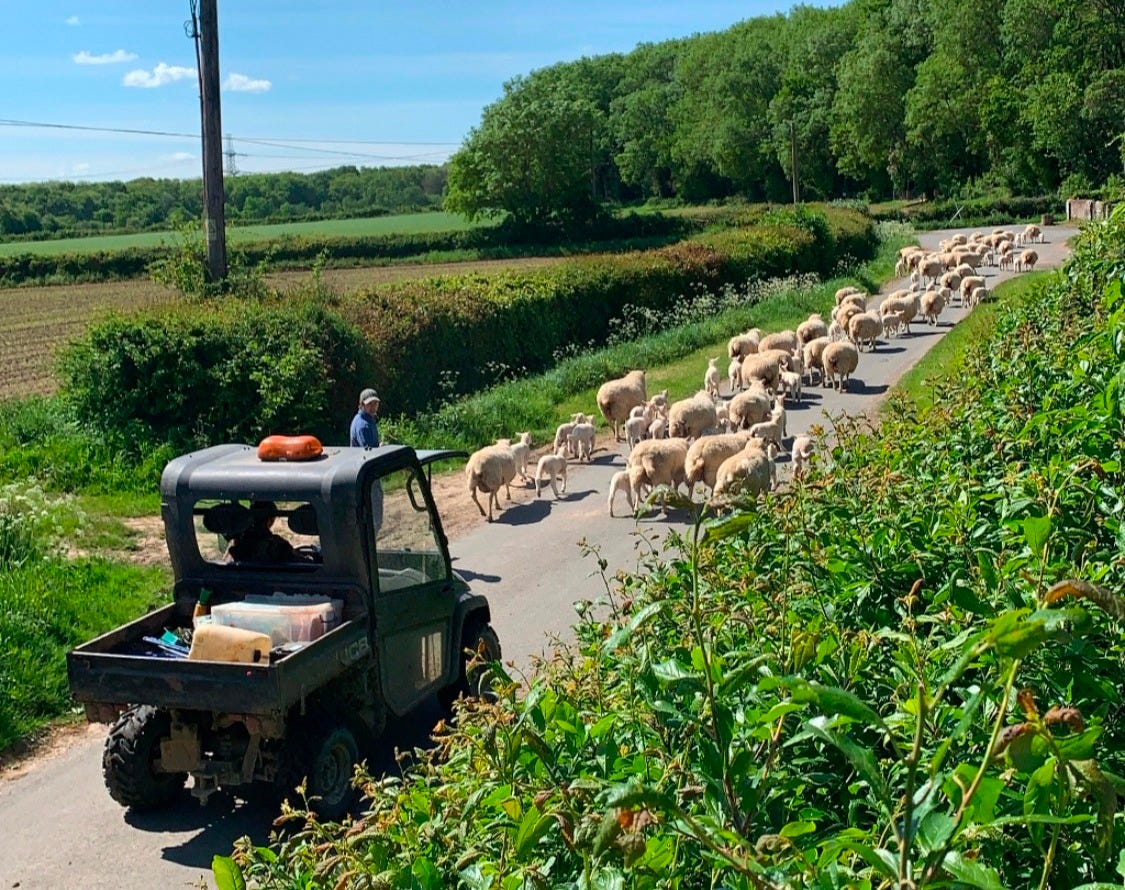
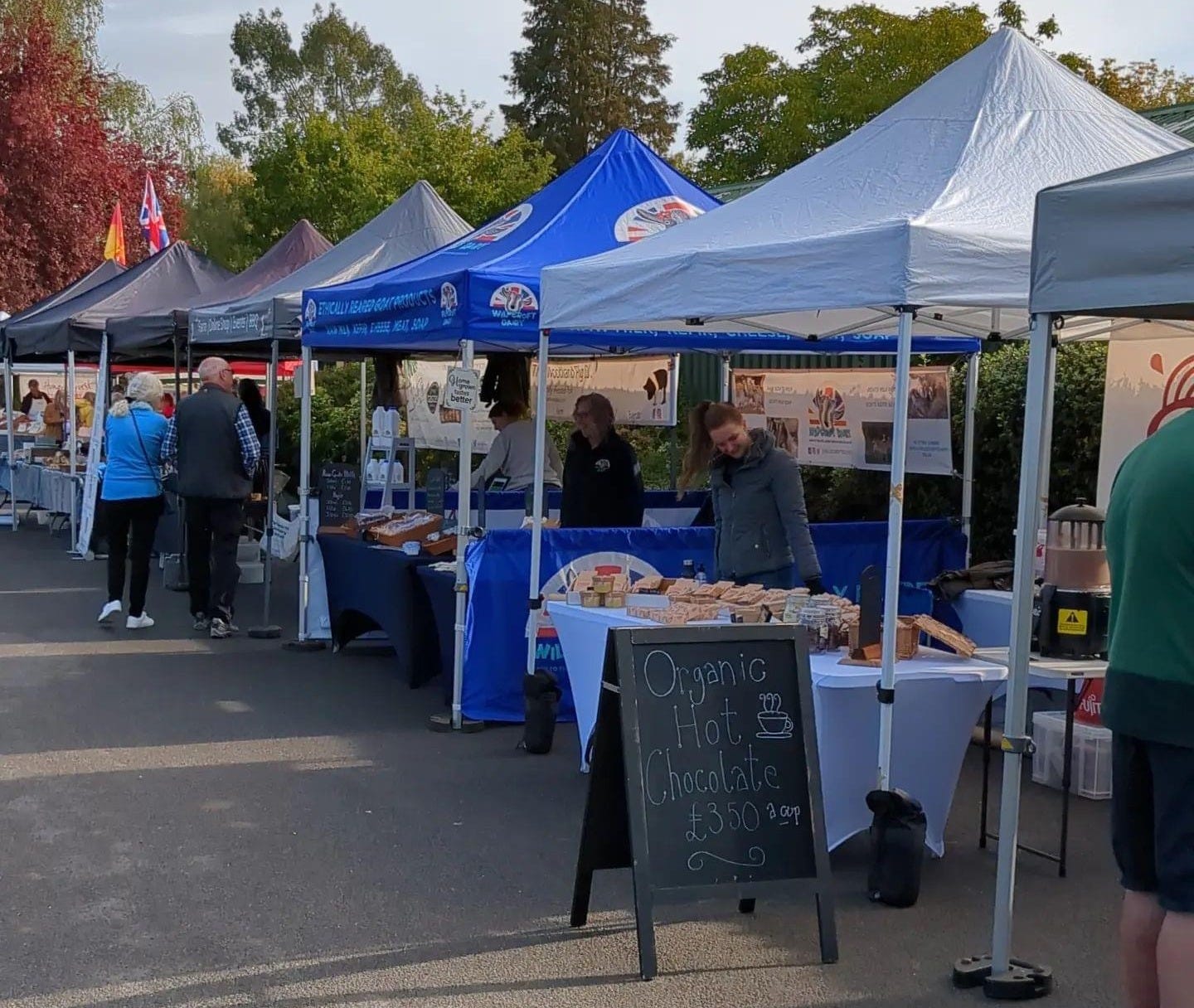
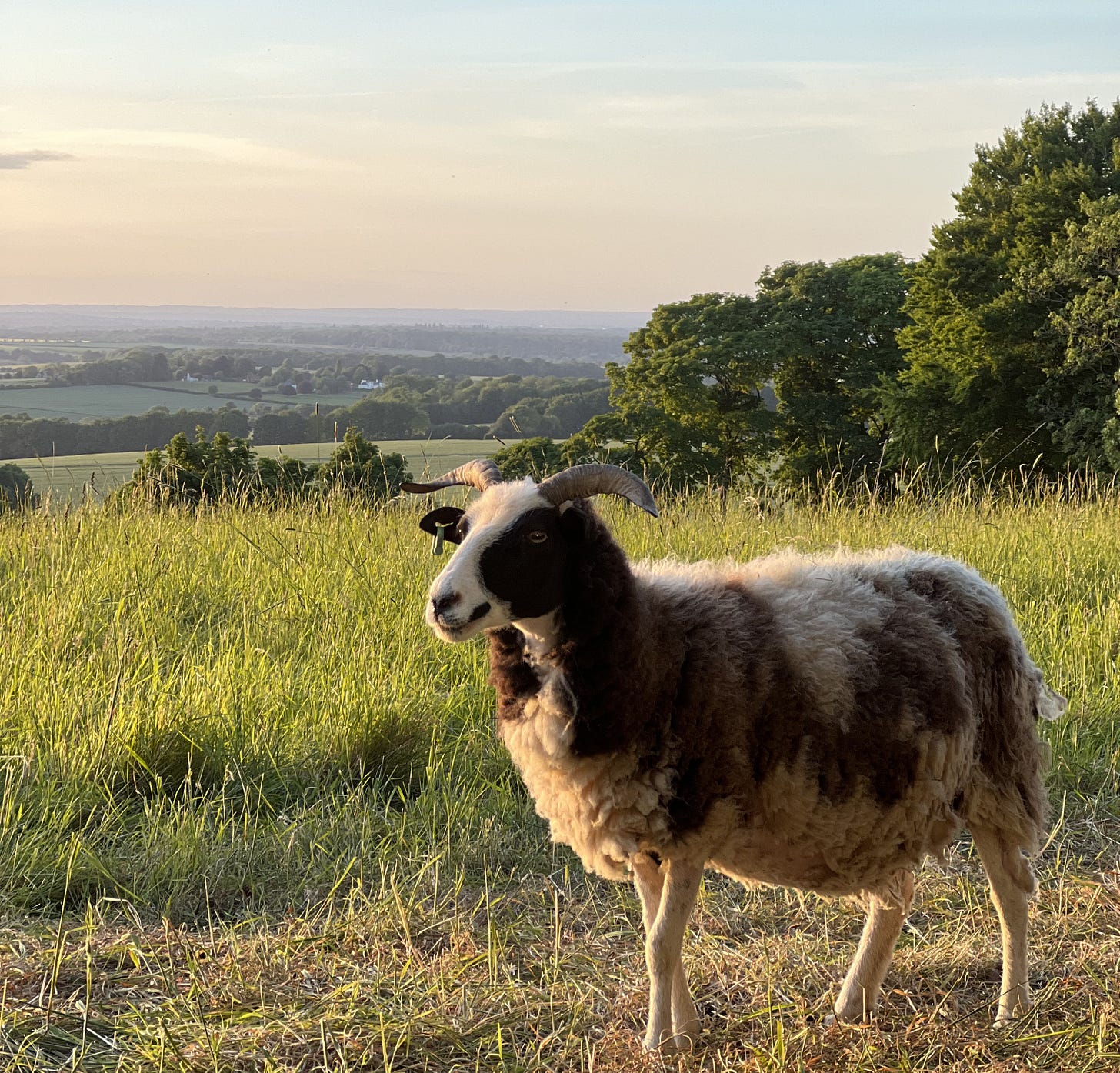
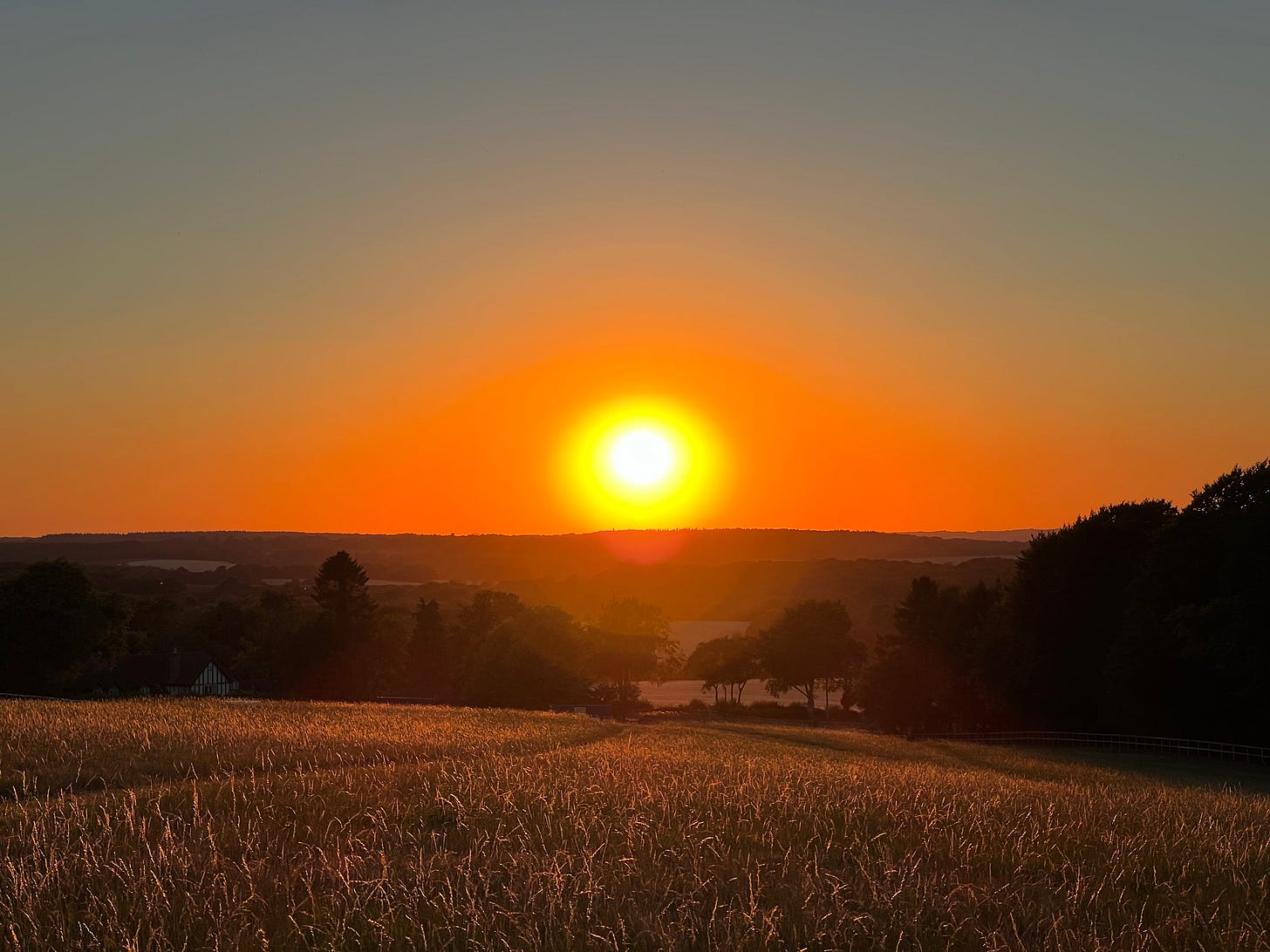
As someone who has worked most of the biggest farmers markets in London for 14 years for a small market garden farm, i have 2 words: advocacy and trust.
First our culture has to change that we actually value food, it's growing aswell as cooking and eating, and this means a massive shift in our culture from an urban outlook to a more balanced view of life where land working is a normal and cool part of life.
Trust means partaking in a fair trade, one that is economic, of best quality and ethical, by which i mean not only welfare and environmentaly sound but genuine. If you look in farm shops and farmers markets, what guarentee is there that produce is actually grown in the UK let alone on the farm it is meant to be ( at market ) or organic? Farming in a business and farmers a business people, and at the end of the day our customers are the ones who deserve the best. CSA in my opinion is ine way to bring trust to farming. Farming is more important than short term profit, and the more of us are involved in our communities the better...
You need to mobilise the whole of London to be on your side. I have no idea about farming but I now you’re crucial to the safety of food. I don’t want billy gates’ food or mosquitos in burgers.